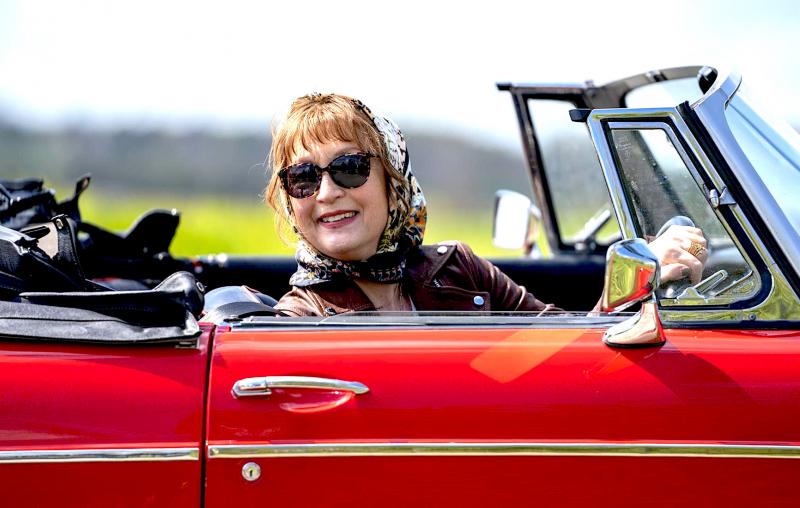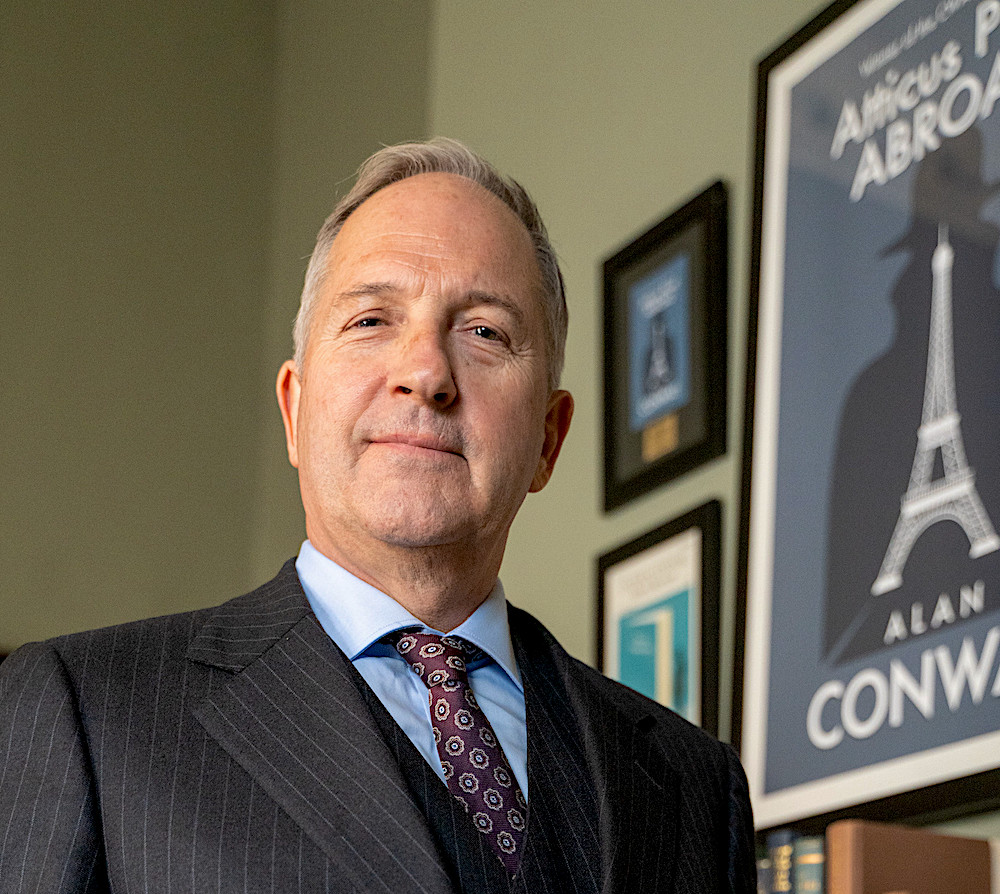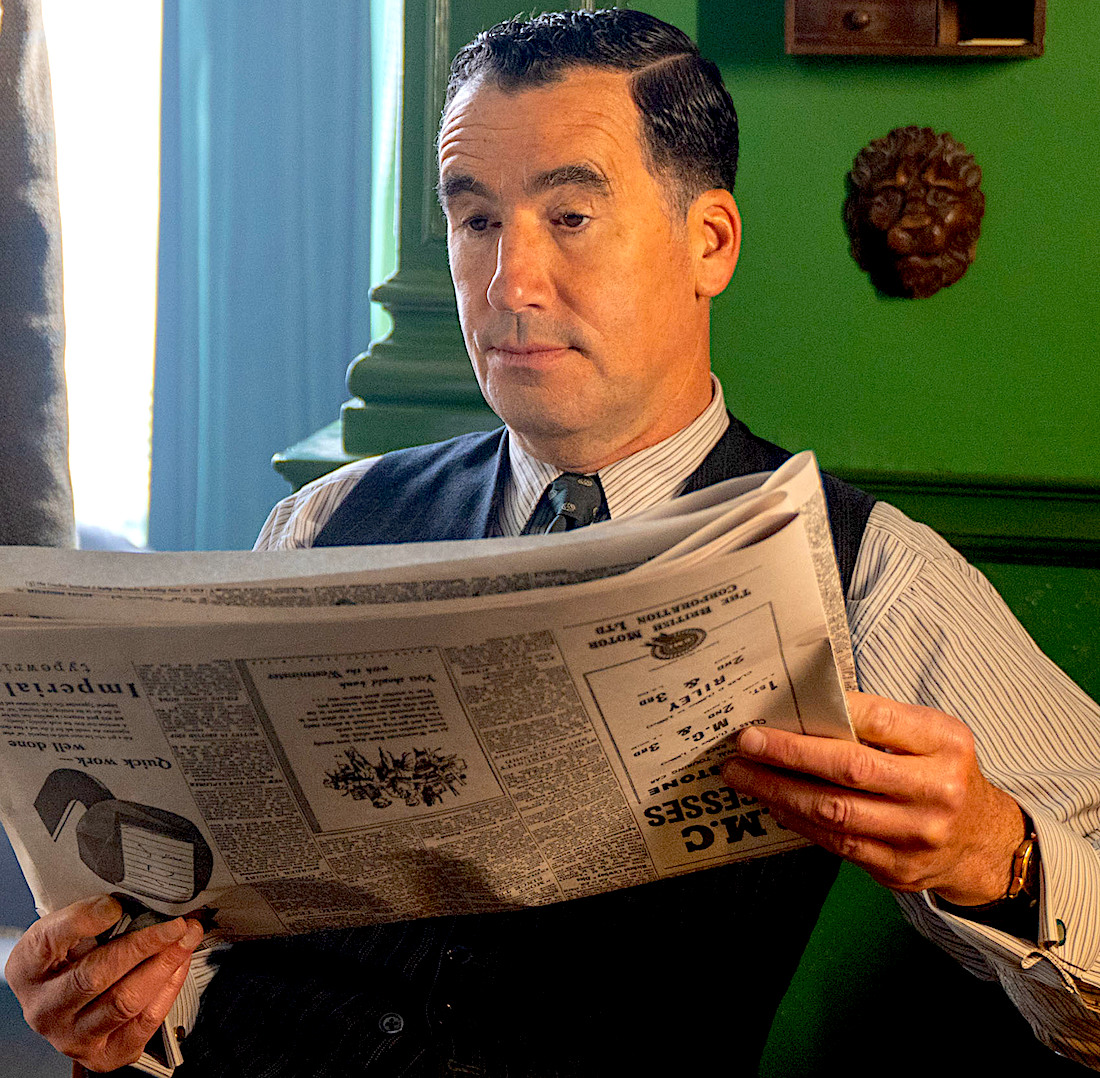Magpie Murders, BBC One review - zinging TV adaptation of Anthony Horowitz's bestseller | reviews, news & interviews
Magpie Murders, BBC One review - zinging TV adaptation of Anthony Horowitz's bestseller
Magpie Murders, BBC One review - zinging TV adaptation of Anthony Horowitz's bestseller
Not only a whodunnit, but also a two-dunnit

Finding a fresh twist on the traditional detective mystery is virtually impossible, but Anthony Horowitz has made a bold stab at it with Magpie Murders. This TV adaptation (which appeared on the BritBox streaming platform last year) has been masterminded by Horowitz from his 2016 bestseller, which ingeniously features two interlocking stories, one set in the present day and one in the 1950s.
Conleth Hill stars as bestselling crime novelist Alan Conway, a staggeringly wealthy but bitter and disappointed man. He struck it rich with his series of novels featuring the detective Atticus Pünd – Pünd being a survivor of Auschwitz concentration camp, who approaches his investigations with a regretful and cerebral air – but Conway really wanted to write novels of high seriousness whose intellectual cachet would be his permanent legacy.
 However, his publisher, Clover Books, is delighted to have Conway’s lucrative string of Pünd bestsellers in its catalogue. So lucrative, in fact, that Charles Clover (Michael Maloney, pictured left), the head of the company, is licking his lips at the prospect of selling out to a wealthy corporate predator with deep pockets. Horowitz’s sceptical depiction of the publishing business is one of the show’s many pleasures.
However, his publisher, Clover Books, is delighted to have Conway’s lucrative string of Pünd bestsellers in its catalogue. So lucrative, in fact, that Charles Clover (Michael Maloney, pictured left), the head of the company, is licking his lips at the prospect of selling out to a wealthy corporate predator with deep pockets. Horowitz’s sceptical depiction of the publishing business is one of the show’s many pleasures.
The only snag is, the buyout deal is contingent on Conway’s latest novel, Magpie Murders (nb: not The Magpie Murders, for reasons yet to be disclosed), being included in the sale, but for some reason the author has delivered it with the crucial final chapter missing. Then comes the shattering news that Conway has been found dead, seemingly having fallen off the high tower at his grandiose Suffolk home. Did he jump, or was he pushed?
Keen to solve the mystery is Conway’s editor Susan Ryeland (Lesley Manville), who hurtles off to Suffolk in her bright red MGB, looking for answers and, above all, the missing chapter. Her journey of discovery turns out be littered with tricky twists and false trails, but what gives Magpie Murders its unique allure is its mischievous double time scheme. Conway’s novel, set in 1955, has been conceived as his revenge on all the people he despises in his life, with his relatives and most of the locals in his home village of Saxby-on-Avon depicted with acidic scorn.
Cunningly, his plot and characters from the slower, sleepier mid-Fifties find distorted echoes in the present. As Susan does her own amateur sleuthing in the village, she receives nods and nudges in the right direction from spectral appearances by the fictional Pünd (Tim McMullan, pictured below, familiar from the Horowitz-penned Foyle’s War), who ambles about in his trench coat and trilby offering cryptic insights into the case.
 The murder of local landowner Sir Magnus Pye in Conway’s novel counterpoints the death of Conway himself, while several actors have a role in both time frames. Daniel Mays plays the popular cliche of the dim copper outwitted by the smart detective twice, as Inspector Chubb in 1955 and Locke, on whom he’s modelled, in the present. The doomed Sir Magnus (Lorcan Cranitch) reappears as Susan’s estranged, seriously ill father in the here and now, while Matthew Beard plays Conway’s flamboyant gay lover James Taylor as well as Pünd’s dogged sidekick Fraser back in the Fifties. Sanjeev Kohli doubles up as a lawyer in 2023 and a doctor in 1955.
The murder of local landowner Sir Magnus Pye in Conway’s novel counterpoints the death of Conway himself, while several actors have a role in both time frames. Daniel Mays plays the popular cliche of the dim copper outwitted by the smart detective twice, as Inspector Chubb in 1955 and Locke, on whom he’s modelled, in the present. The doomed Sir Magnus (Lorcan Cranitch) reappears as Susan’s estranged, seriously ill father in the here and now, while Matthew Beard plays Conway’s flamboyant gay lover James Taylor as well as Pünd’s dogged sidekick Fraser back in the Fifties. Sanjeev Kohli doubles up as a lawyer in 2023 and a doctor in 1955.
The effect is like being haunted by a kind of synthetic déjà vu, as you’re sometimes not sure where you’ve seen that face before, and you can’t quite work out how all the pieces fit together. Visual elisions add to this sense of double vision, with perhaps a veteran 1950s Austin saloon disappearing out of the edge of the frame just as Susan’s MG enters it. Credit to director Peter Cattaneo for managing to keep a tight grip on such slippery material.
He has also conjured some fine performances, with Manville splendid as the veteran editor who’s brilliant at her job and shows great promise as an amateur sleuth, but can’t stomach the political shenanigans of the buy-out. Hill’s portrayal of the viper-like Conway is an impeccable mix of sly charm and explosions of uncontrollable spite, while McMullan brings many deft nuances to his portrayal of Pünd. A treat indeed.
The future of Arts Journalism
You can stop theartsdesk.com closing!
We urgently need financing to survive. Our fundraising drive has thus far raised £49,000 but we need to reach £100,000 or we will be forced to close. Please contribute here: https://gofund.me/c3f6033d
And if you can forward this information to anyone who might assist, we’d be grateful.

Subscribe to theartsdesk.com
Thank you for continuing to read our work on theartsdesk.com. For unlimited access to every article in its entirety, including our archive of more than 15,000 pieces, we're asking for £5 per month or £40 per year. We feel it's a very good deal, and hope you do too.
To take a subscription now simply click here.
And if you're looking for that extra gift for a friend or family member, why not treat them to a theartsdesk.com gift subscription?
more TV
 Mr Scorsese, Apple TV review - perfectly pitched documentary series with fascinating insights
Rebecca Miller musters a stellar roster of articulate talking heads for this thorough portrait
Mr Scorsese, Apple TV review - perfectly pitched documentary series with fascinating insights
Rebecca Miller musters a stellar roster of articulate talking heads for this thorough portrait
 Down Cemetery Road, Apple TV review - wit, grit and a twisty plot, plus Emma Thompson on top form
Mick Herron's female private investigator gets a stellar adaptation
Down Cemetery Road, Apple TV review - wit, grit and a twisty plot, plus Emma Thompson on top form
Mick Herron's female private investigator gets a stellar adaptation
 theartsdesk Q&A: director Stefano Sollima on the relevance of true crime story 'The Monster of Florence'
The director of hit TV series 'Gomorrah' examines another dark dimension of Italian culture
theartsdesk Q&A: director Stefano Sollima on the relevance of true crime story 'The Monster of Florence'
The director of hit TV series 'Gomorrah' examines another dark dimension of Italian culture
 The Monster of Florence, Netflix review - dramatisation of notorious Italian serial killer mystery
Director Stefano Sollima's four-parter makes gruelling viewing
The Monster of Florence, Netflix review - dramatisation of notorious Italian serial killer mystery
Director Stefano Sollima's four-parter makes gruelling viewing
 The Diplomat, Season 3, Netflix review - Ambassador Kate Wyler becomes America's Second Lady
Soapy transatlantic political drama keeps the Special Relationship alive
The Diplomat, Season 3, Netflix review - Ambassador Kate Wyler becomes America's Second Lady
Soapy transatlantic political drama keeps the Special Relationship alive
 The Perfect Neighbor, Netflix review - Florida found-footage documentary is a harrowing watch
Sundance winner chronicles a death that should have been prevented
The Perfect Neighbor, Netflix review - Florida found-footage documentary is a harrowing watch
Sundance winner chronicles a death that should have been prevented
 Murder Before Evensong, Acorn TV review - death comes to the picturesque village of Champton
The Rev Richard Coles's sleuthing cleric hits the screen
Murder Before Evensong, Acorn TV review - death comes to the picturesque village of Champton
The Rev Richard Coles's sleuthing cleric hits the screen
 Black Rabbit, Netflix review - grime and punishment in New York City
Jude Law and Jason Bateman tread the thin line between love and hate
Black Rabbit, Netflix review - grime and punishment in New York City
Jude Law and Jason Bateman tread the thin line between love and hate
 The Hack, ITV review - plodding anatomy of twin UK scandals
Jack Thorne's skill can't disguise the bagginess of his double-headed material
The Hack, ITV review - plodding anatomy of twin UK scandals
Jack Thorne's skill can't disguise the bagginess of his double-headed material
 Slow Horses, Series 5, Apple TV+ review - terror, trauma and impeccable comic timing
Jackson Lamb's band of MI5 misfits continues to fascinate and amuse
Slow Horses, Series 5, Apple TV+ review - terror, trauma and impeccable comic timing
Jackson Lamb's band of MI5 misfits continues to fascinate and amuse
 Coldwater, ITV1 review - horror and black comedy in the Highlands
Superb cast lights up David Ireland's cunning thriller
Coldwater, ITV1 review - horror and black comedy in the Highlands
Superb cast lights up David Ireland's cunning thriller
 Blu-ray: The Sweeney - Series One
Influential and entertaining 1970s police drama, handsomely restored
Blu-ray: The Sweeney - Series One
Influential and entertaining 1970s police drama, handsomely restored

Add comment